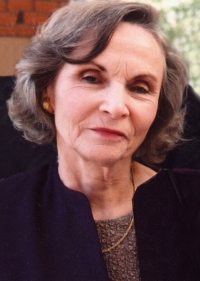
By Charlotte E. Thompson, MD, author of Grandparenting a Child with Special Needs.
Over the years, many grandparents have contacted me about how to be sure a grandchild with obvious muscle weakness received a correct diagnosis. Unfortunately, misdiagnosis often occurs because there are no diagnostic tests for many neuromuscular disorders and not enough pediatric neuromuscular experts world-wide. This is particularly true in the U.S., where the specialty is not a lucrative one. Also, where research grants are obtained in the U.S, the researchers involved are often not clinicians.
Physicians who are neuromuscular specialists have long recognized that there is a high incidence of misdiagnosis. Some surveys find the statistic to be as high as fifty percent – though my experience with children has been that the number is probably greater than fifty percent. An incorrect diagnosis can be harmful in several ways. If the diagnosis might be one where the patient is at risk for a potentially fatal condition called Malignant Hyperthermia (MH), this should be known so that proper precautions can be taken if an anesthetic is needed. If a child is a risk for MH, then close family members, including grandparents, should also be aware of potential problems with an anesthetic.
Another problem with an incorrect diagnosis is that when treatment becomes available for a specific disorder, it can not be started and the condition could rapidly deteriorate. I have seen several patients diagnosed as having muscular dystrophy when they actually had polymyositis or dermatomyositis. Both of these conditions will respond exceedingly well to steroids if the medication is started right away and given in appropriate doses. One child I saw, who was diagnosed as having muscular dystrophy, had obvious dermatomyositis and responded extremely well to prednisone or steroids. Fortunately, the parents and grandparents did not accept the prominent neurologist’s diagnosis and came from out of state to see me. The neurologist however, refused to accept the diagnosis even when the child was rapidly improving with treatment! Parents and grandparents need to trust their own instincts.
If a grandchild has been given the diagnosis of a neuromuscular disorder, I would first check to be sure the physician is a pediatric neuromuscular specialist. If not, I would look for a doctor who is an expert in order to be sure the diagnosis is correct. I currently refer to just one specialist in the U.S. and to one in London. You are welcome to e-mail me at cetmd@earthlink.net for their names and locations.
With all the research that is now taking place, misdiagnosis of muscle weakness in children should be improving and it certainly is in the pediatric neuromuscular centers located in the UK, China, Turkey, Kuwait, Tunis, France, Italy, and Germany. Unfortunately, when biopsies are obtained and the pathology slides are reviewed by doctors without neuromuscular training, the high rate of misdiagnosis still occurs. I think this is particularly hard on grandparents who may want the parents to get a second opinion but feel they can only push so far. Many parents these days are busy working one or two jobs, have financial or insurance constraints, and also have misplaced confidence in their local doctors. Grandparents, who have seen the deterioration in medical care, know that a second opinion is always needed when there is a serious diagnosis. My advice to grandparents is to do some research on your own, bide your time, and then present the research to the parents at a dinner out or a quiet time when the children are in bed.
Copyright © Jessica Kingsley Publishers 2011.